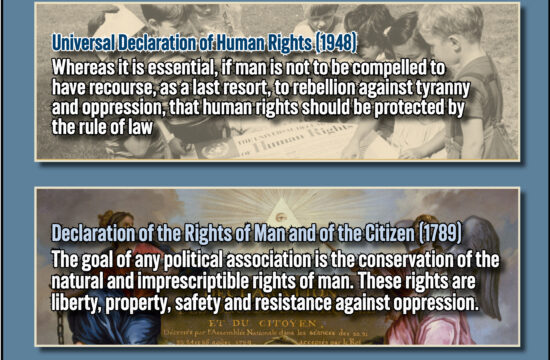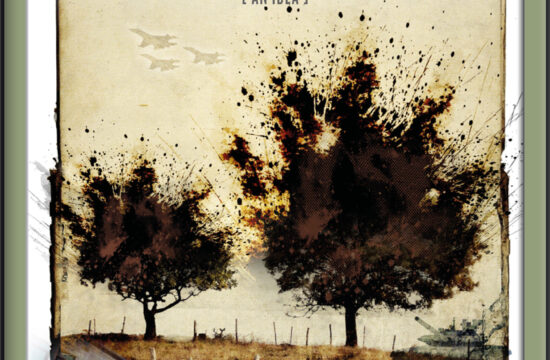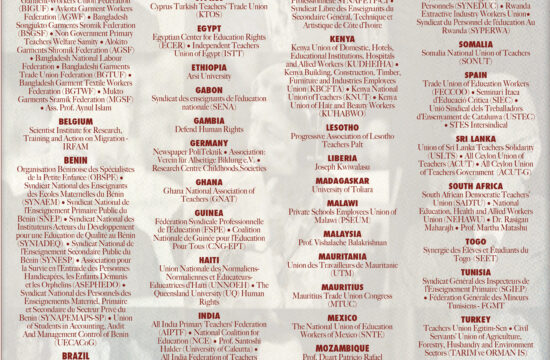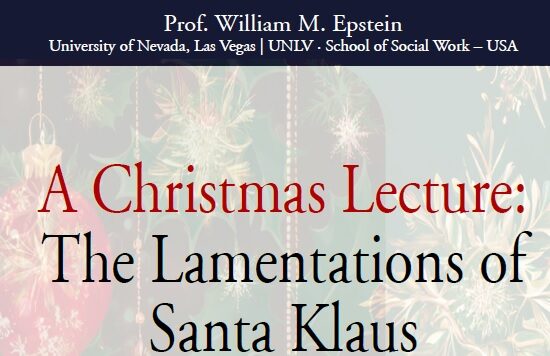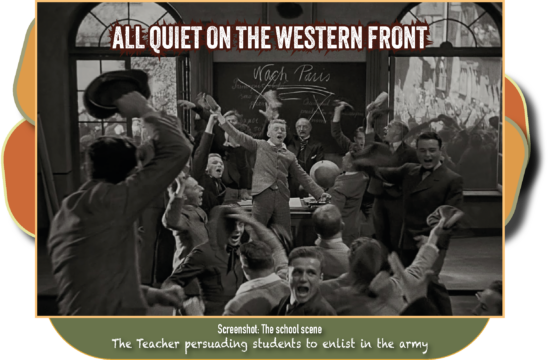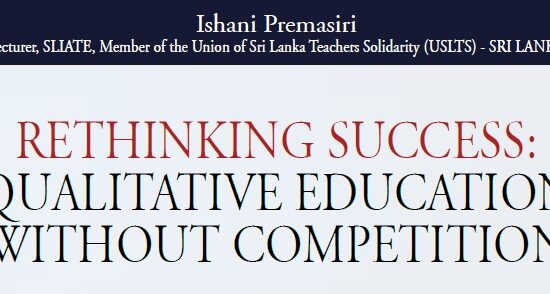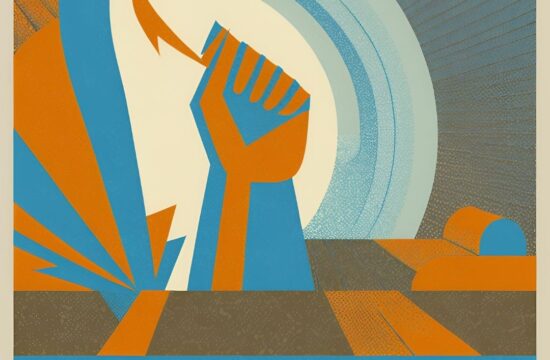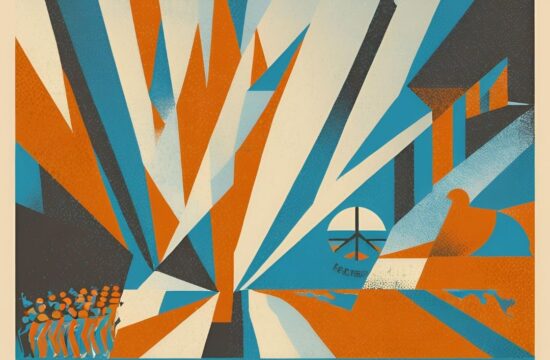Müslüm Kabadayı
Researcher and Author – TURKEY
The main basis of the “right to resist” in human history is being right. Nothing is more legitimate than winning through resistance the right to live equally and freely against exploitation, occupation, war, oppression and violence. Scaling this basis starts from the heart of the individual and extends from the soil we feed ourselves and make our home through labor, to the planet and even the universe.
Resistance movements in every corner of our planet, which crown the right to resist with action, continue to provide very instructive data and lessons. The most important act of humanization is to use such lessons to throw injustice into the scrap basket of history until a way of life is established on our planet in which no one will ever need to exercise the „right to resist“.
In the contemporary world, the Middle East is the geography where the „right to resist“ is practiced under the most difficult conditions, and Palestine is the land that has been soaked in the most blood. There are many lessons to be learned from the century-long resistance of the Palestinian people, who have suffered greatly since the beginning of the occupation of the Palestinian territories by Israeli Zionism. It will remain as a symbol of the patriotic people’s resistance against the occupation and will continue to live in the anti-imperialist struggle of the peoples of the Middle East against the occupation policies of the imperialist countries, especially within the framework of the Greater Middle East Project, which they have intensified in order to plunder the Middle East even more.
The following text, which I have previously written, is dedicated to the struggle for equality and freedom of all the peoples of the Middle East, especially the people of Palestine and Lebanon, to be crowned with real peace, to be published in the Politeknik Magazine.
I may not know when the concept of „homeland“ emerged in the human consciousness, but I can say that the „acquisition of a homeland“ has become a conscience as a product of both intensive labor and social organization.
We know that nationalization as a historical category emerged with the development of capitalism. We all know that nation states became widespread with the French Revolution, which was one of the important turning points; that nationalization processes were completed and national states were established after protracted civil wars in Europe and the Americas, especially in the 19th century; and that many states emerged in Africa and Asia in the 20th century, gaining their independence through national liberation movements against imperialist countries. After the 1917 October Revolution, when class revolutions replaced national revolutions in the last period, humanity has reached a brand new stage and started to embody the hope that a world without exploitation can be established.
Such hope led oppressed and exploited peoples in many parts of the world to epicize their “just war” for freedom and independence. The imperialist- capitalist countries, obliged to maintain the order of exploitation through war, started the Second World War under the destructiveness of Nazi Germany in order to destroy socialism, which started to affect the East and Europe starting from Russia. The people of Soviet Union and the working class of Europe and the Balkans repelled these fierce attacks under difficult conditions. The killing of tens of millions of people in this war, the great suffering in the Nazi camps, the occupation and resistance to the war have been widely covered in cinema and literature. However, no significant works on the great suffering caused by the First World War, the background of the occupations during this period, the resistance against the occupation and the results that emerged have been transferred to the international literature and cinema. Many folk songs and folk epics were written about the occupation of Anatolia and the wars fought on various fronts, especially in Yemen. Following the war, many novels were also written, especially about the War of Independence. Unfortunately, the writings about what happened in Anatolia, which Arif Berberoğlu describes with the lines „Anatolia is a broken cradle in the house of history/shaken sometimes by rebellions, streams of blood/ and sometimes by the winds and the seas…“ in his poem „Betrayal“, could not or were not included among the important works of International literature.
Especially when the Middle East became the center of attention of the capitalist world during the 19th century because of its oil resources and the consequent construction of railroads and the reinforcement of sea routes, the peoples of this region began to signal that they would be the victims of a war of division… It is seen that the writings on this process are mostly concentrated towards the Western centers. In the Middle East, the works of people who are engaged in this process can be found in Istanbul and Beirut. However, due to many reasons such as the low level of education of the people living in this region and the lack of literacy, these works do not resonate with the people. During the First World War and the first years of the British and French occupation, the poems expressing the desire for freedom and independence of the peoples living in the region were mostly epic poems composed by folk poets. These poems became a source of motivation among the soldiers at the front. However, it was the years of French occupation, centered in Lebanon and Syria until 1946, when strong literary works were produced, including stories and novels in addition to poems.
Among the writers and poets who emerged during these years, Hanna Minna, Suleiman Isa and Nizar Kabbani are notable. Suleiman Isa, born in the town of Nairi, later Nahırlı, the former name of the Aknehir town of today’s Samandağ, who later went to Syria, occupies an important place in recent Arabic literature with his poems and works for children. I would like to cite his verse from the the poem „Poets and Voices…“ translated into Turkish by our friend İsmail Özdemir.
“A grain of sand burned by thirst/ As a big flow of rain droplets/ And it’s gone on so long became thirteen anthems in the end/ where clash opposite forces/ Overwhelming forces/ Voices…/ Can’t suffocate all the strands of hope/ A symbol for the tormented, for the shattered…/ Many refuges, many consolations for the poet…/ In the end he inherited… the anthem of eternity/ Let him tell you the story of his torment/ some of his torment/ With these anthems… Something… bitter, hurtful, incomprehensible/ Beats the dream of the poet for a moment/ Then disappears, fades, but/ soon returns. Junio 1967: year of defeat/ Disaster… putting shackles / Closing the gates in his face…/ Strangles the light in his eyes…/ buries him alive/ He could not sing a couplet/ He could not write a word for a whole year…/ For a whole year… derogation faded/ Drowned in shame…/ And those who drowned could no longer write. Junio 1967/ The great pain is still fresh…/ bleeding in the deepest of his depths/ And the word despite all its truthfulness and clarity/ Became helpless / Still struggles with his despair and resists…/ Trying little by little to get his soul out of the grave.”
Hanna Minna’s novel „Mustenka“, or Swamp in its Turkish translation, about the resistance movements that took place in Northern Syria, especially in today’s Hatay region, during the years of French occupation, is one of the most widely read works in the Arab world. As it is known, since the tradition of storytelling in the Arab world continued in poetry, especially in forms of masnavi and qasida, the treatment of these subjects with the novel technique accelerated in this period. At this point, it is necessary to make a brief assessment of prose and the novel, especially in the Arab world.
Arabs call the novel „raviya“ and the novelist „râvi„. We know that „râvi“ means „narrator, reciter, storyteller“. Judging from the word “rivayet”, which we see in Turkish as “Rivayet sanılır sonra” (they might think it is a story) in poetry lines and “rivayet bileşik zaman” (compound tense in Turkish language expressing that the information is derived from another person’s narrative/telling) in grammar, it is easy to associate this with the novel. However, it seems impossible to link this to the novel by associating it with the word “rava”, which is also used in Turkish, without special research.
In the 1960s, when I was a child, in our villages (villages in the Yayladağı district of Hatay), plastic water containers with two compartments hanging from both sides on the backs of animals such as horses and donkeys were used to carry water from a distance. They called it “rava”. This word, which I encountered years later in Damascus, made me think again about why stories and novels are so important to Arabs.
Arabs call prose „nesir, serdi„. They call novel “raviya”. They use the word „râvi„, which means „one who brings water, one who distributes water“, for „novelist“. In this way, they transfer “bahr”, the sea or water, which is part of their poetic tradition, to the novel. It is well known that the development of the novel genre in the West, where it originated, has nothing to do with such a connection. So for the Arabs, the tradition of „narrating“ and „story telling“ developed after a certain accumulation of the tradition of „reciting poetry“ and as a continuation of it. I would like to conclude by making a connection with another important issue. An examination of the books of the religions that emerged in the Arabian Peninsula or in Asia Minor and their reading methods from this point of view reveals that poetic discourse is also dominant in the narratives formed in sentences. It is because of the mesmerizing quality of the poetic and musical recitation that those who listen to them act as if mesmerized, even without any semantic comprehension.
This poetic texture in the narrative must be taken as important data in the evaluation of the language and style in the Arabic novel. An important writer who has demonstrated such a necessity is the Arab novelist Abdul Rahman Munif, whose works have been translated into the world’s languages in the last 20 years, and who has dealt very well in his novels with both the First World War and the methods of US imperialism to access the Middle East. It is witnessed that Abdurrahman Munif, whose novels started to attract attention in the Arab world since the 1970s, made serious efforts to transform Arabic into a novel language due to the fact that Arabic has different dialects and dialects in many regions. Through these dialects, it attempts to create an „intermediate language“ along the lines of nationalism and patriotism. In his novel „Mudun al-Milh“ (Cities of Salt) he used a narrative that approaches „intermediate language“. The main reason for his success in doing so is that the spoken language used by the Arabs, the majority of whom are Bedouins, is very close to Moroccan Arabic. The problem of how to develop the „intermediate language“ in the absence of such affinity, and especially with regard to the problem of developing the Arabic novel of the future, remains for Arab novelists.
Another valuable aspect of Munif’s novel, which consists of five volumes, besides its importance in terms of nationalism, patriotism and anti-colonialism, is that it sheds light on the solution of this problem. In this novel, the dialogues that we can call as Bedouin do not seem strange, nor are they far from the nature of the characters. It is important in this respect that the novel reached a large number of readers in the Arab world without causing controversy and resonated deeply.
I find it appropriate to reproduce here my review of Abdul Rahman Munif’s book, published in Turkish, 17 of December 2003 issue of Nikbinlik magazine: „In his first novel translated into Turkish, Sıbaku’l-Mesafetü’t-Tavila, „Long Distance Running“, he described the espionage activities of British and American imperialists in Iran in the 1950s in the genre of detective novel. The richness of the fiction and narration of the espionage activities along the London-Zurich-Beirut route, combined with the characteristics of the Eastern societies, especially the approaches to sexuality through the character of an Iranian woman named Shirin, made the Arabic novel known in another dimension in Türkiye.“ I would like to pay my respects to this great patriotic and socialist novelist novelist, who passed away very soon after the publication of this article, and I especially emphasize that his novel „Mudun al-Milh“ (Cities of Salt) should be translated into Turkish as soon as possible. In this regard, I hope that the efforts of Papirüs Publications, which attempted to translate after Yenihayat Library Publications, will come to fruition.
The Syrian poet Ali Ahmed Said, known for his anti-occupation poems and symbolist expression, gained prominence in international literature with his poems written under the penname „Adonis“ and includes the following lines in his poem titled „Shaddad„:
shaddad returned, hoist
the flag of desire and
leave the sign of your
rejection on the path of
years
on these pillared stones
homeland of those who
refuse those who live their
lives in despair breaking the
seal of the jars and mocking
threats on the bridges of peace
that is our homeland and our
only heritage
we are the children of that place
waiting for the Day of Judgment“
The same poet, in a section of his poem „Dream“, describes the relationship between „expatriation-homeland“ for the people of the Middle East as follows: „our city has fled/what am I, what? / a spike crying to a lark that dies/ dies after snow and hail/ dies and doesn’t show me the letters it wrote to me/ and doesn’t write to anyone? / I asked for her, and at the end of time / I saw her body lying on the ground / and I cried out: „O silence of the wilderness/ I am the homeland of her expatriation/ I am the expatriate, her grave is also my homeland“.
The great Palestinian poet Mahmoud Darwish was a member of the Communist Party who unhesitatingly expressed the view that the Palestinian and Israeli peoples could live together in an equal and free order. For this reason, he was always targeted by the Zionists and was expelled from the Arab Writers Union, headquartered in Damascus. I would like to quote a fragment from the poem “To My Mother” by Mahmoud Darwish, who has been in trouble from time to time because of the articles he published in the art magazine Karmel, which he directed, both against Israeli Zionism and against the weaknesses of the puppet governments in Arab countries. „If I cannot return/ make me a fuel for the fire of your tandoor/ and put me in your courtyard like a clothesline/ when the daylight of your love is erased/ I have lost my prayer… I’m old/ give me back the stars of my children/ so that I can join the little birds/ give it back to me so that I can reach my expected home/ the home I hope for/ like those birds…“
Another Palestinian folk poet, Tawfiq Zeyyad, wrote: „We will stay here/ resting in the shade of olives and figs/ like yeast in dough/ planting our thoughts/ ice coldness in our nerves/ crimson hell in our brains/ when thirsty squeezing the rocks/ when hungry eating the earth/ but not going anywhere“
In response to the anti-occupation and patriotic poetry of Palestinian poet Fatwa Toukan, Moshe Dayan, a former Israeli leader, once said: „The poems of Fatva Tukan are the most effective weapon turned against us.“
Ali Yüce, a neighbor and fellow poet and friend of the Arab people, responds the call from Hatay: „Listen to me/ The child who resists with a stone/ Against the cannon, rifle and bomb/ Write it down somewhere and remember/ This darkness will rot/ The world will be a rose garden/ Those who cry will surely laugh“
One of the poets from Hatay who fought against the Israeli occupation in Lebanon and Palestine with his Arab comrades between 1981 and 1983 was Adil Okay, who expresses the following in his poem “Palestinian Children”: „My loneliness expands in mute crowds/ The sound of boots drowns our folk songs/ Palestinian children who grew up overnight/ In the minefields of the Intifada/ the holy land is ashamed/ I am ashamed of my helplessness/ I push the limits/ I fill my pockets with rocks“
Suleyman Okay, whose son fought on the Palestinian front, writes in a section of his poem “Tel-Zaatar” „In Tel-Zaatar/ Lumumbas and Spartacuses are born, my darling/ blood and death feed our resistance/ a new Vietnam is born in Tel Zaatar/ Against the Tshombes/ If we die for this cause, my darling, remember/ our sacred and deserved grudge/ pass it on to our children”
Suleyman Okay, whose son fought on the Palestinian front, writes in a section of his poem “Tel-Zaatar” „In Tel-Zaatar/ Lumumbas and Spartacuses are born, my darling/ blood and death feed our resistance/ a new Vietnam is born in Tel Zaatar/ Against the Tshombes/ If we die for this cause, my darling, remember/ our sacred and deserved grudge/ pass it on to our children”
Suleyman Okay, whose son fought on the Palestinian front, writes in a section of his poem “Tel-Zaatar” „In Tel-Zaatar/ Lumumbas and Spartacuses are born, my darling/ blood and death feed our resistance/ a new Vietnam is born in Tel Zaatar/ Against the Tshombes/ If we die for this cause, my darling, remember/ our sacred and deserved grudge/ pass it on to our children” Suleyman Okay, whose son fought on the Palestinian front, writes in a section of his poem “Tel-Zaatar” „In Tel-Zaatar/ Lumumbas and Spartacuses are born, my darling/ blood and death feed our resistance/ a new Vietnam is born in Tel Zaatar/ Against the Tshombes/ If we die for this cause, my darling, remember/ our sacred and deserved grudge/ pass it on to our children” Ali Ozanemre is one of the poets who made Tel-Zaatar the subject of his poetry. Ali Ozanemre, who was born in the Gavur Mountains of Çukurova, a region neighboring Northern Syria and Amik Valley, and who had the opportunity to learn closely about the cultures and the relations of people from different peoples living in this geography, tells the striking events that took place in this geography where Turks, Kurds, Armenians and Arabs blend together in their common lives in his story book İkinci Kerem Sonuncu Aslı (Second Kerem Last Asli). After these stories, where he emphasizes the human dimensions of the conflicts between peoples, the provocations of the occupiers, as well as many personalities who do not lose their human side in the most difficult conditions and glorify friendships, Ali Ozanemre reveals his universal sensitivity in his poetry book Filistin Sancısı (Palestinian Pain). Let’s read the verses from a section of this poem together: „the enemy is a wolf in the white lamb’s coat/ orphaned most of the Palestine/ all roads are cut off on Tel Zaatar/ have you seen such resistance, Beirut/ which makes closer the distant“
Ali Ozanemre’s compatriot Ahmet Tolu, who is nourished by the cultural geography of Ali Ozanemre, calls out as follows in his poem „The Palestinian War“: “Yahweh said „walk“ beyond the Euphrates/ walk, he said to the children of brothers/ a wise man is dead sea/ a history in the middle of Palestine/ every angry face similar to each other/ peace limping in the tunnel of darkness/ the wind is playing a concertina to the birds/ the tongue of the west bound/ pain mingles with blood in Palestine/
flowing into the lakes of the holy land/ children are crying in the Dead Sea/ there is no other radiance but the sun/ screams know no boundaries/ west is far away and deaf/ all one, all the same/ blood for blood/ blood mixed with blood, descendants with descendants/ „human beings“(!) stop the war/ don’t chew humanity in your mouth/ in the name of humanity/ which you don’t know! // do not crush the light in the darkness/ in the narrow streets of Baghdad/ for a handful of bitter anger/ let not the faces of children darken/ in the dimness of your brain/ in the name of life / resuscitating a dog on a cliff/ containing only the joy of living your movements/ and as you all reach the peak of happiness/ do not lead man into the traps of death// mesopotamia has nourished the ages/ nourished assyria and sumer in her arms/ do not destroy/ the place where the crop spread around the world
The poet Nevruz Uğur, who lives in Hatay, Hatay, at the intersection of the Middle East and the Mediterranean, writes in his poem „Filistin’de (Yine) Kan Konuşuyor“ (Blood Sheds in Palestine (Again)): “… Now I’m a rose in Palestine/ I’m tagged the collar of all peoples/ I was killed in the soil where I was sown/ I saw the last miracle of the sacred staff/ My brothers died in the arms of Moses (…) I’m with love/ The cherry on the lip, the blush on the cheek/ The ache in the heart/ It’s on the neck of the lover/ Here/ In the desert/ I’m burning instead of oil/ You’re burning/ They’re burning/ From the broken membrane of my painful homeland/ Rage burns like semen splattered/ From the belly of Palestine to give birth to guerrillas“
In the 1980s, Iran and Iraq fought for years a war provoked by the Saddam regime, which adhered to a war scenario prepared by the United States, this was followed by the invasion of the Kuwait by Iraq, and then directly by the US imperialism’s orchestrated war, the so-called “Gulf War”, these wars are not so old that they have faded from memory. In March 2003, the „bandit states“, which started dropping bombs on the Iraqi people with the participation of the US, Britain and a few collaborator countries, gradually began to feel the „Vietnam syndrome“ at a time when the anti-occupation resistance was taking root and becoming widespread. In this period, important Iraqi poets emerged who empowered the Iraqi people through literature, especially poetry. Among them, I would like to quote the last part of the poem “The Wedding of the Jackal” by Saadi Youssef, who was born in 1934 in the village of Abd al-Hasib, near Basra, and who, like Nizar Kabbani and Abdul Rahman Munif, was forced to live in other places because of his socialist ideas:
„Ah, Victorious al-Nawab, / let’s make a deal: / Let me take your place/ (Damascus is far away from that secret hotel…) / Let me spit in the faces of the jackals / Let me spit in their lists, / Let me proclaim that we are the Iraqi people / we are the ancient trees of this country, / we are proud under the humble roofs of thatch.“
Now let’s read the poem „Yusuf Segahta“ by Menuchehr Ateshi, one of the poets who felt the pain of the unjust Iraq-Iran war mentioned above, in his heart and who stands out with the color of the Persian language among the anti-occupation lines from the Middle East…
1. O my innocent brothers There is a long way to the well waiting for the Egyptian caravans, and that wolf conceived with your words a bride yet to be born let’s harvest a few lilies from Canaan’s green valleys
2. O my miserable brothers, do not set your ambushes in vain to hunt the nameless doves of Palestine (the bird born from the hell of swords beak from the fire) and the meat of a motherless goat it will be more delicious for the father (who deceives his brother and father)
3. O my poor brothers who conceive tricks, there lives a mad woman in Egypt who will make me king, so, hurry up the promised well is close to you so hurry up, brothers, to lick with your long tongues the lips of that infamous innocent wolf born in your market of jealousy!
The Kurdish people, one of the oldest peoples of our geography, are known to have experienced great suffering throughout history. In the past, these sufferings were embodied in Ehmedê Xanî’s masnavis, and more recently, they have gained depth in
Cigerxwîn. The poet of this people whose „bloody lungs“ corresponds to the meaning of his name, I would like to give three examples from his poetry that I think complement each other.
O WORKERS, UNITE
How long will we remain slaves
Feet chained arms yoked Always on
the side of the slave owners
Until when will we stand by them
This is the age of freedom
This is the age of freedom
Whether to disappear or to remain
to live or to mourn
„kimim ben –
(who am I), 1973”
……
The slaver always wants us to remain
so blind
We, the poor yoked ones, so that
he can live exalted So that he can
sell us cloth, iron and tractors at
high prices So that he can take our
wealth, our land, our oil by force
So that he may eat our sheep and
vineyards and
we may serve him as shepherds and
vineyard keepers.
“özgürlük devrimi
(freedom revolution) 1954”
CRUELTY IS DYING
WITH THE JUDGMENT AND
VIOLENCE OF THE AGE
Take that rag out of your ears, that’s enough Listen to the cries and shouts.
Listen and get ready for war, take your rights by force Enough of theft, crime, extortion and cruelty It doesn’t suit you, people.
It is the age of tanks and airplanes, What’s all this hustle, skewer and rosary Read so you can be free, get stronger and succeed in your fight Look, everything in the world has become like the Palestinian war.
“özgürlük devrimi
(freedom revolution) 1954”
Some of the poets and writers who grew up in today’s Hatay, which was occupied at the same time as Lebanon and Syria, have written poems, stories and novels on this subject, as we have given a few examples above. We can cite many works, from R. Halit Karay’s „Çete“ and Ali Yüce’s „Şeytanistan“ to Burhan Günel’s „Soldiers of Pain“, from Refik Halit Karay’s „Gurbet Hikayeleri“ to Bekir Sıtkı Kunt’s stories. Without further delay, I would like to mention the poems of two poets who wrote about the years of French occupation.
Poet Süleyman Okay, as someone who spent his childhood during the French occupation years, includes the following lines in his poem „Gün Avcısı“ (Day Hunter), which he dedicates to „the brave Antakya fighters of the days of the French occupation“: “And he drew the revolver/he had hidden in his aba/ he emptied once/ another one/ while its echo beat the city/ he entered/ his black cave/ with one end in Kefalabit … The day was glorious/ the seagulls woke up first/ their beaks flowed with their red robes/ the day hunter looked at the city/ from the hill in a daze“
Sabahattin Yalkın, a close friend of Süleyman Okay, in his poem „Greetings from me to Cemil Hayyik“, tells the epic story of Cemil Hayyik, a brave Nusayri who reacted against the oppression of the poor people by the French occupiers in collaboration with some landlords. The first three parts of the poem are as follows: “1. In the silence of the turtledoves Rebel waters/ Flows in a thousand kinds of love to the Mediterranean/
Before water of soil/ Walking to the pepper seedlings/ Cemil Hayyik with a mauser rifle, on the trigger
2. How many years have the French been him/ Sentenced to death/ If one day he gets caught/ He does not care neither the blue sky of the south/ Nor the smell of laurel/ Especially the bullets of the militia/
It’s nothing for him 3. One night the brats of the landlord/ They’ve stripped the sharecropper’s daughter naked/ The waters of Karachay weep blood/ – Oh sister, oh honor/ That’s the rumor/ And the stars are always silent“ Sabahattin Yalkın’s writing and poetization of this epic poem is important in terms of revealing the class nature of the war and occupation.
Sabahattin Yalkın’s „Dicle’de Zaman“ (Time in Tigris) poem is a lament of the Middle East, including Anatolia, in a synthesis of past, present and future.
1. Oh… I can’t leave the words
and Baghdad is there, far away, on
the banks of the Tigris.
The day will break soon spice-scented
streets light up The waters flow
collecting the sounds of the call to
prayer
Time becomes a pain of Karbala in
the faces
“Oh the blessed morning…” – Blessed
morning And what on earth is
this, Gog and Magog cannons?
A lamented song mingles with
the waters of the Tigris
2. Oh… I can’t leave out the
words Jamil Hawwa of Iraq… A
Christian Arab
Beside the Danube, with her snowwhite
girl Something half English
and half Hungarian
Said to the Budapest woman whom
he impregnated
„God is our trustee…“ – „God is my
witness I’ll marry you!“
And I’ll undress kissable Ilona into
the night
A hopeless love mingles with
the waters of the Tigris
3. Oh… I can’t leave out the words
The Tigris-Euphrates becomes excited as the snows of Munzur melt The frost of the night magnifies the loneliness of the mountains
this border… this desert… this fear… Renews his ablution in Baghdad a Shiite Imam
“Le ilahe illallah…” – There is none to worship but God and a thousand- eyed satellite ashamed of his eyes.
A bloody time mingles with the waters of the Tigris
We should underline that in the Middle East, where twin rivers gushing from the peaks of mountains and irrigating deserts with no borders, meet each other in Mesopotamia, where “rebel” rivers that flow in reverse and dance in the deep plains, where tribes swallow sand and spit oil, and where the invaders have always lost, we hope that anti-occupation lines will prevail today as well. Let’s deepen the socialist outline of art in order to cross out the „occupation“.


